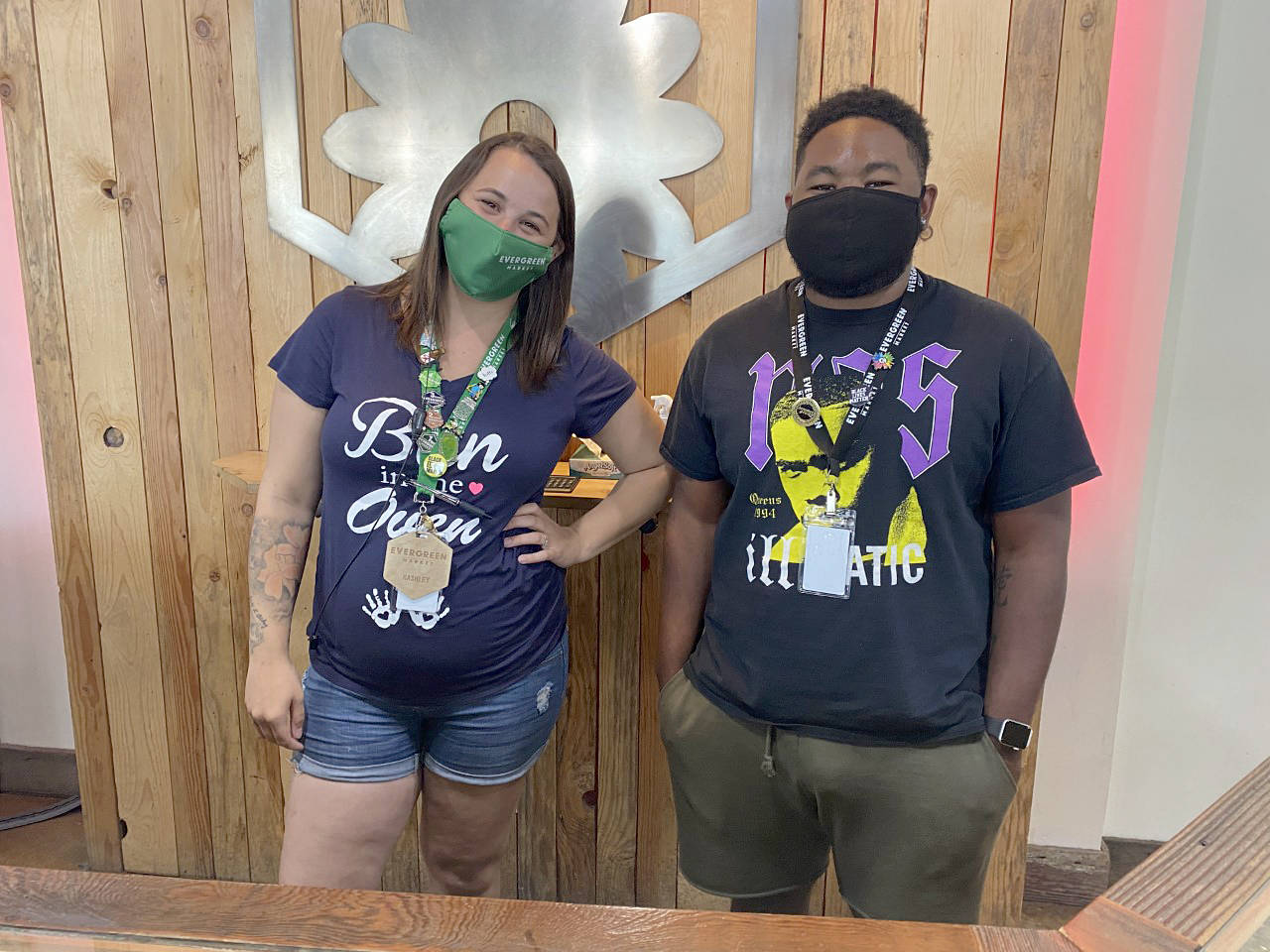When panic buying for hand sanitizers and toilet paper began to strip the shelves of big-box stores in the first weeks of the COVID-19 pandemic, the pot business was dealing with its own parallel panic buying.
Not in 2-ply Charmin, mind you, but in CBD salves, creams and liquids.
In the smokeable stuff that comes with names like Lumpy Space Princess, NW Afgooey and Pre 98 Bubba Kush, Golden Pineapple and Loaded Chillum, Sirius Buds and Fat Panda, Gorilla Skunk and Rude Boi.
“It really was that week of March 17 when all the shutdowns started happening,” said Erin Green, a consultant for Auburn’s Evergreen Market at 402 16th St NE, one of three Auburn dealers in all things cannabis. “And you saw that nationwide, cannabis retailers were recording record sales just because of the uncertainty of whether cannabis would be deemed essential or not.”
“There definitely was a lot of bulk buying then,” recalled Louis Franco, store manager at Evergreen Market. “We noticed a lot of increase in demand for like the 28 gram, full-ounce weights, the half-ounce weights, those bigger ones. I don’t think we saw too much of a drop afterward.
“People weren’t saying, ‘I’m stocked up now, I don’t have to buy weed.’ It was more like, ‘I’m going to be more stocked up by going again tomorrow and getting more,” Franco added. “I would say a lot of our medical patients that used CBD products, that was kind of the first stuff people were bulking up on. Honestly, it was all across the board, every line of product was running low, and everybody was coming in for everything,”
When the state of Washington started closing businesses, people in the recreational marijuana business like Franco, Green and Marketing Manager Nikki Marengon were asking themselves the questions everyone else was — will they shut us down, will we keep going, how will we keep going?
“We actually did not know we would be deemed an essential business until it was announced,” said Marengon. “Luckily for us, people at the state recognized that when Washington residents made recreational cannabis legal in 2012, the recreational market caught fire, whereas, the medical market pretty much disappeared.”
Looking at the data, Marengon continued, it didn’t take a Ph.D to figure out that medical patients had switched to recreational pot stores, And that during a crisis, they would need the product perhaps more than ever.
“I think that that was the pivotal reason we were deemed essential, because to those people, we were a form of medicine. We didn’t want people to go without that,” Marengo said
Not only did retail sales bust the ceiling, the public demand also stressed employees and producers and processors farther back in the supply chain.
“How do you maintain the output that you’ve been putting out when you can’t have as many employees because they have to be at least 6 feet apart?” Marengon asked.
“If you can smell the weed on the person in front of you, you’re not social distancing enough,” Green suggested.
Smokeable, ingestible, chewable or spreadable, weed has turned out to be most excellent at keeping the pandemic-induced isolation and weirdness of the moment at bay and from harshing the public’s mellow. Certainly beats dunking the by-now desperate family dog into the soap suds for its 20th washing in a week.
“If you are not able to leave the house,” said Marengon, “what better thing to do than smoke a lot of weed?”
The remaining two retail marijuana stores in Auburn are The Stash Box at 3108, A St. SE., and Green Rush Investment at 404 Auburn Way S.
Marijuana sales in Washington state increased from $31 million to $1,977 million between 2014 and 2017, according to the Washington State Liquor and Cannabis Control Board.


